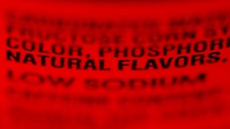"Garbage gardening" is an easy and inexpensive way to grow flowers and edibles using kitchen scraps — the pits, seeds and roots that otherwise would be headed to a landfill. It's a fun way to recycle. Educational for the kids, too.
"Almost every unprocessed fruit or vegetable can be grown into a decorative houseplant," said Deborah Peterson, co-author of "Don't Throw It, Grow It" (Storey Publishing, 2008).
"Some are perennials, others are annuals or biennials," Peterson said. "You will be amazed as you discover how these beautiful plants can develop."
Chickpeas, for instance, can be coaxed to flower in hanging baskets, and beets can be transformed into showy dish gardens with their colorful purple and green foliage surrounding contrasting blooms.
Start new plants on the windowsill by using the byproducts from roots, nuts, tubers, beans, bulbs, seeds or cuttings. The "garbage," if you will.
Water, pebbles, soil or peat can be used as a growing medium.
"Every plant you grow should go outside for five months or so, depending upon where you live," said Peterson, from Scituate, Massachusetts. "Winter becomes a holding pattern (for perennials), just keeping them alive. But once they're out again, in summer, they're wonderful."
Marianne Ophardt, Washington State University Extension's Benton County director, added, "Garbage gardening is done more to teach children about plants than it is to create new gardens."
"Most of your kitchen scraps will be thrown away, but some can be used to provide a unique learning opportunity," she said.
Children often want instant gratification, so keep things simple. Choose quick-sprouting plants like potatoes, beans, carrots, melons and radishes. "Pineapples wouldn't be a good idea," Peterson said; it takes pineapples two or more years to fully mature and produce flower stalks.
Beware trying to grow plants from imported fruits or vegetables, like the papaya, kiwi or pomegranate commonly found in grocery stores during the winter, Peterson said. Study labels for the fruits' origin. Many have been irradiated, making them sterile, meaning they won't sprout.
"I love mangos and every year try to get one to grow, but they just don't," Peterson said.
Also, avoid hybrid fruits and vegetables because their seeds won't deliver the same taste.
Choose self-pollinating produce, like tomatoes, Ophardt said. "You can save those seeds and get the taste you want."
Citrus seeds are capable of becoming flourishing houseplants because they tolerate home temperatures and dry, indoor air. But under most home conditions, citrus plants started from seed will not flower or bear fruit, according to a University of New Hampshire Cooperative Extension fact sheet.
"Indoor citrus plants seen with flowers and or fruits are special miniature varieties," it said. "Plants grown from standard eating varieties will make decorative foliage specimens and attractive floor plants."
Some recycled remnants can do double duty as ornamental and edible. Take sweet potatoes, for instance.
"I use them in my window boxes as decorative vines," Peterson said. "I have a collection of small (sweet) potatoes about the size of my thumb when I take them out of the box in November. They really taste good."






